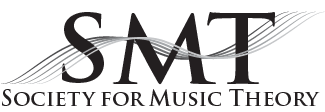Hello!
If you would like to participate in discussions, please sign in or register.
Categories
In this Discussion
- Carson Farley January 2015
- Darryl White January 2015
Most Popular This Week
The influence of the status quo undergraduate curriculum on the future of music
For debate:
Resolved: The weighting of the undergraduate music theory curriculum for most university-level music programs in favor of the common practice period and its pop & jazz extensions has the (intended or unintended) consequence of limiting the creation, exploration, discovery, effectiveness and enjoyment of a growing repertoire of non-CPP works.
One specific example that sticks out is found in most core theory requirements I have reviewed & which I commented on in a footnote in my most recent blog entry:
Music theory today is stuck on the currently popular distinction made between "tonal" and "post-tonal" theories. This unfortunate bifurcation appears to have arisen in part as an attempt to improve on the term "atonal." But it has mostly caught on due to its pedagogical utility. In undergraduate music curricula, traditional "tonal" theory is unquestioningly required in all cases. "Post-tonal" theory – a potpourri of ideas about an increasingly large body of works that have in common only their inability (or mulish refusal) to fold into the comparatively well understood orbit of "tonal" works – is at best an elective or add-on. It is difficult to deny that this effectively ghettoizes all musics and their associated theories that lie outside the bounds of common practice "tonality" and its contemporary extensions to pop and jazz.
SMT Discuss Manager: smtdiscuss@societymusictheory.org


Comments
Everything makes an impact in one way or another. If there is a negative impact of our curriculum, it's part of a wider institutional/political/cultural problem. This is evidenced by the ever-widening divide between what music theory we teach to future professional musicians and academics and what is happening in current musical practice. One might even say that there is now a disconnect between the two.
I would have to admit that my musical training in institutions of higher learning, ie., colleges and universities has served me well and that studying music from the classical and jazz curriculum, or from the art music perspective has been vital for my comprehension of musical concepts and technique. Anyone seriously interested in music is well advised to study the masters (in any field) if they wish to attain the highest levels of understanding and technique. The advantage to teaching music from the fine art perspective is that it offers a historical survey of technique and style used by musicians of all historical periods - so one can understand where music comes from, how music evolves, and where music may be heading in the future. Unfortunately there are no short cuts in the study of music and one must devote years of study to harmony, counterpoint, composition, theory, performance, history, ethnomusicology, and other topics. The effective teacher can and should however illuminate complex ideas into comprehensible and usable information. If you really want to learn about music you will need to put your pencil to manuscript paper, or your mouse to notation software!